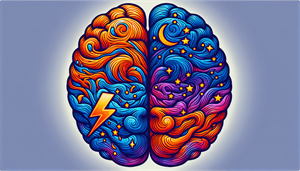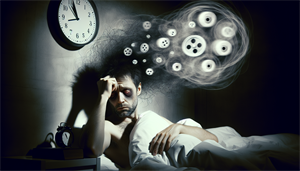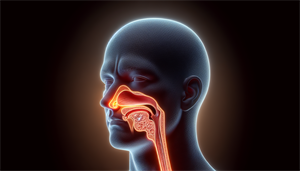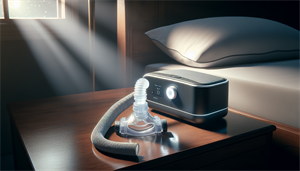Navigating the challenges of ADHD can be complicated, especially when sleep issues like sleep apnea enter the mix. Could your sleep apnea be misunderstood as ADHD symptoms, or is one condition worsening the other?
This article aims to clarify the link between ADHD and sleep apnea, offering insight into their shared symptoms, the potential for misdiagnosis, and how treatment can address both conditions. Get ready to understand the essentials and pave the way for better management of your health.
Key Takeaways
-
There is a significant overlap between ADHD and sleep apnea, with symptoms such as difficulty concentrating, forgetfulness, and mood swings appearing in both, leading to challenges in accurate diagnosis and potential for misattribution of symptoms.
-
Treatment strategies for those suffering from both ADHD and sleep apnea include lifestyle changes such as weight loss and regular exercise, use of medication, and behavioral therapies, which together can manage symptoms and enhance quality of life.
-
Accurate diagnosis of sleep apnea in individuals with ADHD is essential and can involve home sleep tests and professional evaluations, highlighting the importance of considering both conditions when addressing sleep-related symptoms and cognitive impairments.
Exploring the Overlap: ADHD and Sleep Apnea

The intriguing connection between ADHD and sleep apnea exhibits a significant overlap. A 2019 study discovered that 19.1% of people with obstructive sleep apnea were found to have ADHD. This overlap is more than a mere coincidence and can pose challenges during diagnosis due to similar symptomatic presentations.
The potential for misdiagnosis arises when symptoms of sleep apnea like difficulty concentrating, forgetfulness, and mood swings are mistaken for ADHD symptoms. Additionally, sleep disordered breathing, a characteristic of sleep apnea, can further complicate the differentiation process. The impact of poor sleep quality due to sleep apnea can exacerbate ADHD symptoms, such as inattention and hyperactivity. In fact, sleep problems are often overlooked during routine ADHD assessments, despite their significant impact on life quality.
Defining ADHD and Its Symptoms
Attention deficit hyperactivity disorder (ADHD), a neurodevelopmental disorder, is characterized by inattention, hyperactivity, and impulsivity. People with ADHD often struggle with focusing on tasks, staying still, or controlling impulsive behavior. These symptoms can significantly affect a person’s daily life, including their performance at school or work, relationships, and self-esteem.
Contrarily, sleep apnea is a sleep disorder that manifests through repeated pauses in breathing during sleep. These interruptions in breathing can lead to poor sleep quality and daytime sleepiness, which can impact overall health and well-being. Interestingly, individuals with ADHD commonly experience sleep problems, which are often overlooked during diagnosis. Considering both conditions when evaluating symptoms is therefore vital.
Understanding Sleep Apnea and Its Indicators
Sleep apnea is a prevalent sleep disorder characterized by:
-
interruptions in breathing or shallow breathing during sleep, affecting sleep apnea sufferers with untreated sleep apnea
-
loud snoring
-
compromised sleep quality and fragmentation
-
daytime sleepiness
-
difficulty concentrating
-
forgetfulness
These symptoms can significantly overlap with those of ADHD, leading to potential misdiagnosis.
Further, delayed sleep phase syndrome, another sleep disorder, can coexist with ADHD. This condition, characterized by a delay in the sleep-wake cycle, can further complicate the diagnosis and treatment process. A comprehensive understanding of sleep apnea and its indicators proves critical for ensuring accurate diagnosis and effective treatment.
The Symptomatic Confusion: Shared Signs of ADHD and Sleep Apnea

ADHD and sleep apnea share an array of common symptoms, including difficulty concentrating, restlessness, and mood swings, making it challenging to differentiate between the two conditions. Furthermore, addressing sleep apnea can enhance the quality of nightly rest, potentially leading to a reduction in the intensity of ADHD symptoms in some individuals.
The utilization of a Continuous Positive Airway Pressure (CPAP) device, a common treatment for sleep apnea, may improve focus during the day and decrease daytime sleepiness in individuals with both ADHD and sleep apnea. Given the potential for symptoms to mimic those of ADHD, it is essential to consider all contributing factors, including underlying sleep disorders, in evaluations to avoid possible misdiagnosis.
Investigating the Impact of Poor Sleep on ADHD

Poor sleep quality resulting from frequent awakenings during apnea events can perpetually exhaust the brain, thereby exacerbating ADHD symptoms and causing heightened inattention, hyperactivity, and impulsivity. Sleep deprivation can negatively impact attention functioning in individuals with ADHD, leading to enhanced symptoms of inattention.
Early findings also indicate that primary caregivers of children with ADHD and sleep issues may experience:
-
heightened levels of depression
-
anxiety
-
stress
-
tardiness to work
This underscores the broader effects of poor sleep quality and how it can disrupt sleep, extending beyond the immediate challenges faced by the patient, such as restless legs syndrome.
Treatment Crossroads: Addressing Both ADHD and Sleep Apnea
The improvement of overall health and well-being hinges on addressing both ADHD and sleep apnea. Utilizing a combination of lifestyle changes, medication, and behavioral therapy can be effective in managing symptoms, enhancing quality of life, and optimizing treatment outcomes.
Lifestyle Changes for Managing Symptoms
The management of ADHD and sleep apnea symptoms can be significantly aided by implementing beneficial lifestyle changes. These include:
-
Losing weight
-
Engaging in regular exercise
-
Abstaining from alcohol and smoking
-
Avoiding certain medications that can affect sleep
-
Modifying sleep patterns
Complex exercises such as martial arts and aerobic activities are particularly beneficial in managing symptoms of both conditions. Furthermore, adhering to a balanced diet consisting of:
-
ample fruits and vegetables
-
whole grains
-
healthy fats
-
proteins
is essential for supporting brain health and facilitating improved sleep.
Medication and Behavioral Therapy Options
Pharmaceuticals like solriamfetol, clonidine, and guanfacine have been utilized in the treatment of both ADHD and sleep apnea. Stimulants such as Adderall and Ritalin elevate brain chemicals like dopamine and norepinephrine, thereby improving focus and attention in individuals with ADHD.
In the realm of behavioral therapy, cognitive-behavioral therapy for insomnia (CBT-I) is a structured program designed to assist individuals dealing with insomnia. This form of behavioral therapy could also be advantageous for adolescents and adults experiencing sleep issues related to ADHD.
Diagnostic Journey: From Assessment to Action
Obtaining an accurate sleep apnea diagnosis is a critical step in the management journey of ADHD and sleep apnea. A home sleep test and professional consultation can play a significant role in the diagnostic process, providing valuable insights that guide treatment strategies.
Home Sleep Test: Assessing Apnea in Your Own Home
A home sleep test for diagnosing sleep apnea involves:
-
wearing a non-invasive breathing monitor overnight
-
the monitor detects snoring, measures heart rate, and breathing
-
provides essential insights for diagnosis and subsequent sleep apnea treatment.
The procedure for conducting a home sleep test typically entails:
-
Affixing sensors to the patient’s finger and chest
-
Monitoring heart rate and oxygen levels
-
Identifying any breathing interruptions that could signal apnea events
When to Consult a Doctor: Recognizing the Need for Professional Help
In the management of both ADHD and sleep apnea, recognizing the signs that require urgent medical attention is of utmost importance. Symptoms such as:
-
waking up choking or gasping for air
-
sleep disruption
-
excessive daytime sleepiness
-
problems with attention, concentration, and memory
warrant immediate consultation with a healthcare professional.
Seeking medical advice for ADHD and sleep apnea is essential when experiencing symptoms, as professional help ensures accurate diagnosis and appropriate treatment of both conditions. Healthcare professionals specializing in this area include sleep specialists, psychologists, and psychiatrists.
Strategies for Improved Sleep Hygiene in ADHD Patients
For individuals with ADHD, the enhancement of sleep hygiene practices can significantly improve sleep quality. Incorporating a regular bedtime routine and creating a sleep-conducive environment are key strategies for achieving better sleep.
Regular physical activity plays a crucial role in regulating sleep patterns and enhancing sleep quality. Additionally, a nutritious diet containing omega-3 fatty acids, magnesium, and vitamin B6 is essential for supporting brain health and facilitating improved sleep for individuals with ADHD.
Personal Stories: Real Experiences with ADHD and Sleep Apnea
Delving into the personal stories of individuals living with these conditions is necessary to truly grasp the impact of ADHD and sleep apnea. Based on patient testimonies and research, the coexistence of ADHD and sleep apnea is quite common, highlighting the importance of accurate diagnosis and effective treatment.
Individuals often recall experiencing sleep problems such as sleep apnea alongside ADHD. In some cases, individuals were initially misdiagnosed with ADHD when they actually had sleep apnea. Upon treating sleep apnea, they noticed an alleviation of their ADHD symptoms.
Following diagnosis, individuals often make various changes such as incorporating exercise, implementing behavioral modifications, and making lifestyle modifications recommended by their doctors to manage ADHD symptoms and improve sleep.
Summary
In conclusion, the intricate connection between ADHD and sleep apnea is one that warrants attention due to its significant impact on individuals’ lives. Understanding the shared symptoms, the impact of poor sleep on ADHD, and the importance of proper diagnosis and treatment can greatly enhance the quality of life for those living with these conditions.
It’s crucial to remember that while ADHD and sleep apnea can pose significant challenges, there are effective strategies for managing symptoms and improving overall health. From lifestyle changes to medication and behavioral therapy, a comprehensive approach can lead to significant improvements in individuals’ daily lives.
Frequently Asked Questions
What sleep disorders are associated with ADHD?
Sleep disorders associated with ADHD include obstructive sleep apnea, snoring, and delayed sleep phase disorder. These conditions are common among individuals with ADHD and can significantly impact their quality of sleep.
Why do people with ADHD struggle to sleep?
People with ADHD may struggle to sleep due to impaired arousal, alertness, and regulation circuits in the brain, as well as a delayed circadian rhythm with a later onset of melatonin production.
How many hours of sleep do adults with ADHD need?
Like everyone else, adults with ADHD need seven or eight hours of sleep a night to promote health and prevent fatigue during the day. This helps in managing symptoms and improving overall well-being.
What's the connection between ADHD and sleep apnea?
Treating sleep apnea can reduce the intensity of ADHD symptoms, as there is a significant overlap between the two conditions, with shared symptoms like difficulty concentrating and mood swings.
How is ADHD diagnosed?
ADHD is diagnosed through comprehensive evaluations, including multiple tests and diagnostic interviews conducted by a qualified clinician. This comprehensive process helps determine the presence and severity of ADHD.


